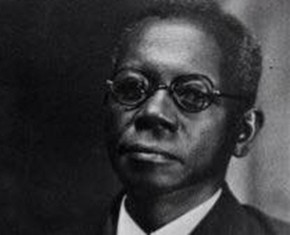The views expressed in our content reflect individual perspectives and do not represent the authoritative views of the Baha'i Faith.
Verily, His Honour President Wilson is self-sacrificing in this path and is striving with heart and soul, with perfect good-will, in the world of humanity. Similarly the equitable government of Great Britain is expending a great deal of effort. Undoubtedly the general condition of the people and the state of small oppressed nationalities will not remain as before. Justice and Right shall be fortified but the establishment of Universal Peace will be realized fully through the power of the Word of God. – Abdu’l-Baha, Star of the West, Volume 5, pp. 42-43.
The unity of the human race, as envisaged by Baha’u’llah, implies the establishment of a world commonwealth in which all nations, races, creeds and classes are closely and permanently united, and in which the autonomy of its state members and the personal freedom and initiative of the individuals that compose them are definitely and completely safeguarded. – Shoghi Effendi, The World Order of Baha’u’llah, p. 203.
President Wilson’s famous Fourteenth Point—“A general association of nations must be formed under specific covenants for the purpose of affording mutual guarantees of political independence and territorial integrity to great and small states alike”—had a powerful impact on the world, and continues to expand its influence today.
The idea of a general association of nations wasn’t new—Immanuel Kant and other philosophers had dreamed and written about it for centuries. But it had not yet crystallized into a workable, feasible model until the Baha’i teachings gave it direction, content and force:
The Great Being, wishing to reveal the prerequisites of the peace and tranquillity of the world and the advancement of its peoples, hath written: The time must come when the imperative necessity for the holding of a vast, an all-embracing assemblage of men will be universally realized. The rulers and kings of the earth must needs attend it, and, participating in its deliberations, must consider such ways and means as will lay the foundations of the world’s Great Peace amongst men. Such a peace demandeth that the Great Powers should resolve, for the sake of the tranquillity of the peoples of the earth, to be fully reconciled among themselves. Should any king take up arms against another, all should unitedly arise and prevent him. If this be done, the nations of the world will no longer require any armaments, except for the purpose of preserving the security of their realms and of maintaining internal order within their territories. This will ensure the peace and composure of every people, government and nation. – Baha’u’llah, Gleanings from the Writings of Baha’u’llah, p. 248.
Because of Baha’u’llah’s initial call for a world convocation of leaders to establish global peace, and because of Wilson’s strong advocacy of the general idea six decades later, the Great Powers and a few dozen other nations succeeded in creating the first international organization with the principal mission of establishing and maintaining world peace.
The League of Nations formed on 10 January 1920, at the Paris Peace Conference, which ended the First World War. Its Covenant attempted to prevent future wars by a mechanism of agreed-upon collective security and disarmament. It promised to prevent wars through international cooperation and negotiation. Could it work?
It might surprise you to learn that Abdu’l-Baha said no:
For example, the questions of Universal Peace, about which His Holiness Baha’u’llah says that the Supreme Tribunal must be established: although the League of Nations has been brought into existence, yet it is incapable of establishing Universal Peace. But the Supreme Tribunal which His Holiness Baha’u’llah has described will fulfil this sacred task with the utmost might and power. And His plan is this: that the national assemblies of each country and nation — that is to say parliaments — should elect two or three persons who are the choicest men of that nation, and are well informed concerning international laws and the relations between governments and aware of the essential needs of the world of humanity of this day. The number of these representatives should be in proportion to the number of inhabitants of that country. The election of these souls who are chosen by the national assembly, that is, the parliament, must be confirmed by the upper house, the congress and the cabinet and also by the president or monarch so these persons may be the elected ones of all the nation and the government. From among these people the members of the Supreme Tribunal will be elected, and all mankind will thus have a share therein, for every one of these delegates is fully representative of his nation. When the Supreme Tribunal gives a ruling on any international question, either unanimously or by majority-rule, there will no longer be any pretext for the plaintiff or ground of objection for the defendant. In case any of the governments or nations in the execution of the irrefutable decision of the Supreme Tribunal, be negligent or dilatory, the rest of the nations will rise up against it, because all the governments and nations of the world are the supporters of this Supreme Tribunal. Consider what a firm foundation this is! But by a limited and restricted League the purpose will not be realized as it ought and should. This is the truth about the situation, which has been stated. – Abdu’l-Baha, Tablet to the Hague, pp. 10-11.
Of course, Abdu’l-Baha’s view proved uncannily accurate. With only 58 nations as members at its peak, the League never exerted much influence, and lasted only a few decades in total.
Instead of a chiefly unilateral agreement imposed by a group of victorious nations on the vanquished, the Baha’i teachings recommend a much more democratic solution—the creation of a globally-elected world parliament. Until that can happen, the Baha’i teachings say, humanity will keep operating under the old, outmoded, inefficient and inherently warlike system of competing national sovereignties.
But without question, we continue to move toward a global system of governance that will, once and for all, eliminate devastating warfare and its enormous costs to humanity. The question is: How will our own individual and collective endeavors promote that powerful goal?
















Comments
Sign in or create an account
Continue with Googleor